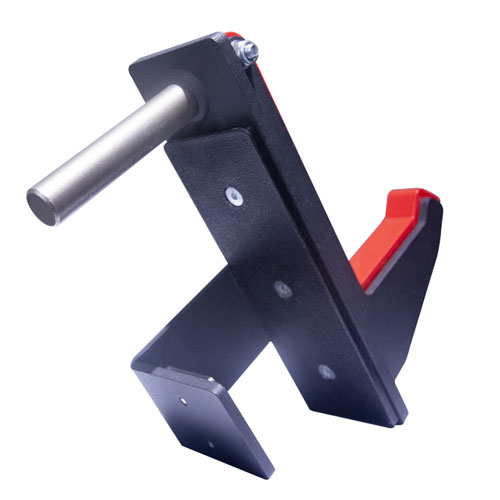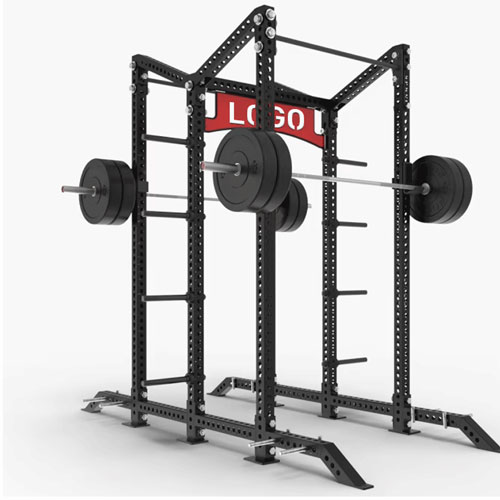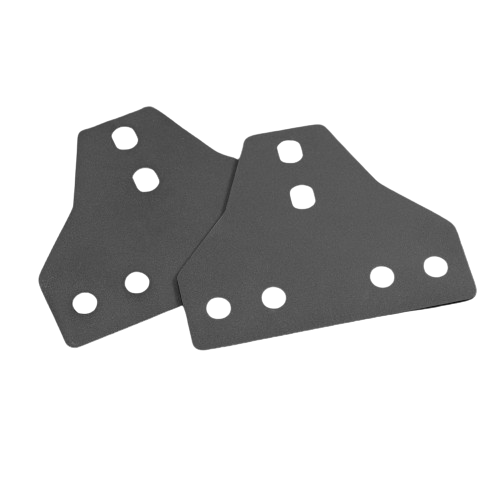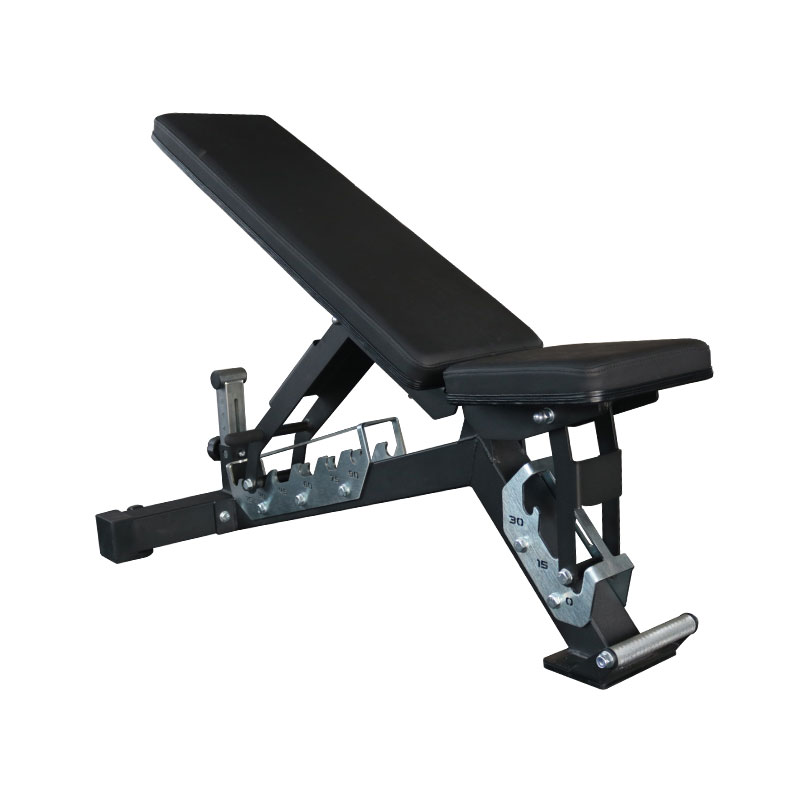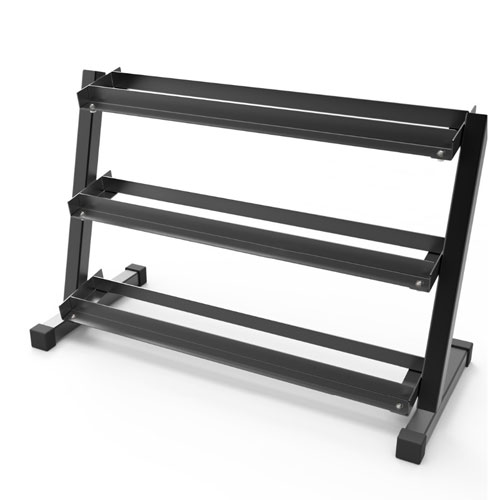How to Clean and Maintain Rubber Weight Plates
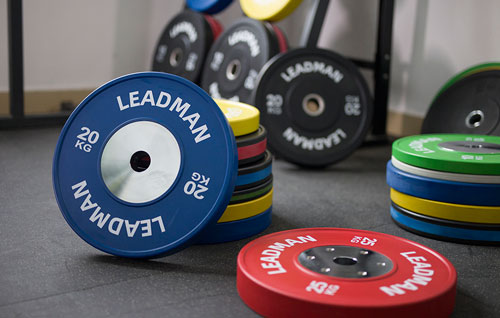
Rubber weight plates are an essential piece of fitness equipment, providing the necessary resistance for strength training. Keeping them clean and well-maintained is crucial for not only ensuring optimal performance but also preserving the safety and hygiene of your workout space. Proper care will extend the lifespan of the plates, improve the aesthetics of your home gym, and reduce potential health risks from bacteria and grime build-up. This guide offers a comprehensive approach to cleaning and maintaining your rubber weight plates to ensure they stay in top condition.
Benefits of Properly Cleaning and Maintaining Your Weight Plates
- Extended Lifespan: Regular cleaning and maintenance help prevent premature wear and tear, ensuring your weight plates last for years to come. Proper care keeps them looking and performing their best over time.
- Improved Hygiene: Weight plates come into contact with sweat, dirt, and bacteria during each workout. By cleaning them regularly, you reduce the risk of infections or skin irritations, ensuring a healthier environment for your workouts.
- Safety Enhancement: Well-maintained weight plates reduce the chances of accidents caused by cracks, chips, or peeling, which can lead to injuries. Regular checks help identify any damage early.
- Aesthetic Appeal: Clean weight plates add to the overall appearance of your gym. Regularly maintained equipment looks professional and inviting, creating a motivating environment for your workouts.
Step-by-Step Cleaning Guide
Materials Needed:
- Mild soap
- Soft sponge or cloth
- Warm water
- Clean, dry towels
Instructions:
- Inspection: Before you begin cleaning, carefully inspect the weight plates for visible dirt, grime, or damage. Check for cracks, chips, or any signs of wear that may require further attention.
- Wetting: Dampen a soft sponge or cloth with warm water. Apply a small amount of mild soap to the sponge to create a gentle cleaning solution.
- Scrubbing: Gently scrub the surface of the weight plate. Focus on areas with heavy dirt or grime but avoid using any abrasive materials that could damage the rubber coating.
- Rinsing: Rinse the plate thoroughly with clean water, ensuring that no soap residue remains on the surface. Soap residue can attract dirt and bacteria, which may compromise the hygiene of the plate.
- Drying: Dry the weight plate with a clean towel. Ensure the plate is completely dry before storing it to prevent moisture buildup, which could lead to rust or damage.
Step-by-Step Maintenance Guide
Materials Needed:
- Silicone-based lubricant (optional)
- Soft cloth
Instructions:
- Inspection: Regularly check the weight plates for cracks, chips, or warping. Pay close attention to the edges and the rubber coating. Any visible damage should be addressed immediately to prevent further deterioration.
- Lubrication: If the plates are squeaking when used or are prone to friction-related wear, apply a silicone-based lubricant to keep them functioning smoothly. This lubricant helps protect the plates and prevents squeaks.
- Storage: Store your weight plates in a cool, dry environment away from moisture. Prolonged exposure to humidity can cause the rubber to break down or develop mold, leading to stains and odors.
- Prevention: Always clean the plates after each use to avoid bacteria build-up, and inspect for any signs of damage after every workout.
Preventing Odors and Stains
- Ventilation: Store your weight plates in a well-ventilated area to allow air circulation. This helps prevent the buildup of moisture, which is a primary cause of unpleasant odors.
- Moisture Avoidance: Avoid exposing the weight plates to excessive moisture, which can lead to staining or material degradation. If plates become wet, dry them thoroughly before storing.
- Immediate Cleaning: After every workout, clean your weight plates promptly to prevent sweat and grime from setting in and attracting bacteria.
Common Cleaning Mistakes
- Harsh Chemicals or Abrasives: Using harsh chemicals or abrasive scrubbing tools can damage the rubber surface and shorten the lifespan of your plates. Stick to mild soap and soft sponges to ensure a safe cleaning process.
- Over-Scrubbing: Excessive scrubbing or the use of hard brushes can strip the protective coating off the plates, causing them to lose their durability and become more prone to damage.
- Insufficient Rinsing: Failing to rinse the plates thoroughly leaves soap residue that can attract dirt and bacteria, ultimately affecting the cleanliness and hygiene of your equipment.
Tips for Specialized Weight Plates
- Urethane Weight Plates: Urethane-coated weight plates should be cleaned with a damp cloth and mild soap. Avoid soaking them in water, as excessive moisture can affect their protective coating.
- Metal Weight Plates: For metal weight plates, focus on removing rust or corrosion. Use a wire brush to scrub the rusty areas and apply a protective coating to prevent further deterioration.
- Bumper Weight Plates: Bumper plates are designed to absorb impact but can still become damaged if exposed to excessive moisture. Clean them with a damp cloth and avoid submerging them in water.
Comparison of Cleaning and Maintenance Methods
| Method | Soap and Water | Specialized Cleaning Products | Manual Cleaning | Machine Cleaning |
|---|---|---|---|---|
| Effectiveness | Moderate | Excellent | Moderate | Excellent |
| Cost | Affordable | Can be expensive | Labor-intensive | Costly |
| Effort | Medium | Low | High | Low |
| Time | Moderate | Fast | Lengthy | Quick |
| Convenience | Easy to perform, requires few tools | May need specialized products for tougher stains | Requires physical effort and time | Fast, no effort involved |
| Risks | Minimal if soap is used properly | Can cause damage if products are too strong | Over-scrubbing or incorrect methods | Potential damage if used incorrectly |
| Best For | Routine cleaning and light stains | Stubborn stains and deep cleaning | Heavy-duty, grime-covered plates | Large-scale gyms or automated setups |
Troubleshooting Common Maintenance Issues
- Peeling or Cracking Weight Plates: If you notice peeling or cracking, contact the manufacturer for repair or replacement. This is often a sign of prolonged wear or poor storage conditions.
- Rusty Weight Plates: For metal weight plates, use a wire brush to remove rust. Afterward, apply a protective coating to prevent the rust from returning.
- Warped Weight Plates: If your weight plates are warped, they can lead to uneven weight distribution during workouts. Replace any warped plates as soon as possible to prevent safety hazards.
Conclusion
Regular cleaning and maintenance of your rubber weight plates are essential for preserving their functionality and enhancing the safety and aesthetic appeal of your home gym or commercial fitness space. Following these cleaning and maintenance steps will ensure that your plates remain in excellent condition, offering you the best performance for your workouts. Keep your equipment in top shape, and it will reward you with improved safety, longevity, and visual appeal—making every workout experience more effective and enjoyable.
FAQ About Cleaning and Maintaining Rubber Weight Plates
1.How often should I clean my rubber weight plates?
It's recommended to clean your rubber weight plates after every workout. This helps prevent the buildup of sweat, dirt, and bacteria, ensuring a hygienic workout environment. Regular cleaning also helps maintain the appearance and longevity of the plates.
2.Can I use bleach or harsh chemicals to clean my weight plates?
No, you should avoid using bleach or harsh chemicals as they can damage the rubber surface and shorten the lifespan of your weight plates. Instead, use mild soap and warm water with a soft sponge or cloth for safe cleaning.
3.What should I do if I notice cracks or peeling on my weight plates?
If you notice any cracks or peeling, it's important to address the issue immediately. Contact the manufacturer for repair or replacement options. Damaged plates can pose safety risks during workouts, so it's best to replace them as soon as possible.
4.How can I prevent odors from developing on my weight plates?
To prevent odors, store your weight plates in a well-ventilated area and avoid exposing them to excessive moisture. Clean them promptly after workouts to remove sweat and grime, and ensure they are completely dry before storing them. Regular cleaning and proper storage will help maintain their freshness.

